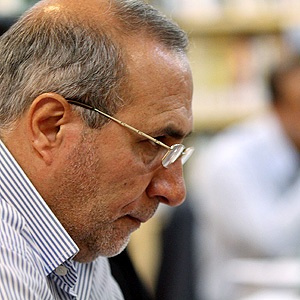Africa a Lost Cause without a Road Map

IRD: What is your impression of Manouchehr Mottaki’s recent visit to West Africa?
JQO: There is no doubt that Africa needs more attention in our diplomacy. Previous administrations were also aware of this necessity, and they had dedicated particular attention to Africa. But the important point is that we need a clear plan to achieve our goals, whether they are economic or diplomatic. On-and-off efforts in recent years have imposed a heavy price on our country, and compared with the Hashemi Rafsanjani and Khatami administrations, the achievements have been much less in Ahmadinejad’s government.
For instance, look at the Iran-Africa Forum held in September in Tehran, where leaders of secondary African states were invited to Iran. I’m not sure if any related efforts followed the forum, or at least we have not been informed about it.
The timing and schedule of Mottaki’s visit is also questionable. He visited four countries in five days. What could his economic delegation and the private sector representatives achieve in this short time? It is extremely unlikely that they could have signed any contracts within a few hours. Negotiations on economic issues require at least a couple of days of talks.
IRD: Could Iran realize any economic potential in these countries?
JQO: I don’t think so. As I said, they are second-rank countries in Africa, and economic partnerships with them will have the least impact on our economic affairs. Mottaki’s visit was justifiable if it was for political goals, but I do not think these countries can even command a five-percent share of our total trade exchange. The point is that if economic contracts were the basic goal, there was no need for an official of Manouchehr Mottaki’s rank to visit these West African countries. Even trade exchanges with Ghana, Iran’s closest economic partner in West Africa, are limited to the import of cocoa nuts.
IRD: After returning from his African visit, Manouchehr Mottaki has said that Iran-Africa trade volume is now a multi-billion dollar business. Which specific activities have possibly increased the trade volume to this level?
JQO: The foreign minister should be more careful about the words he uses. Ambiguous remarks are the trend that started since the Ninth Administration [Ahmadinejad’s first term] and they are not of course exclusive to Mottaki. The total trade volume—import and export—with West Africa is less than half a billion dollars. This is of course without considering oil exports, which as the government itself has defined, are not included in the statistics of our trade activities.
IRD: Is Iran’s economic cooperation within Africa economically justifiable?
JQO: It is. Africa is a highly lucrative business, if only we know how to capitalize on it. But we need a clear road map. All administrations have, of course, failed to develop this map. We have not been successful in encouraging our entrepreneurs to invest in this region. The majority of investments have been carried out by the government, like the Samand auto manufacturing factory in Senegal, which started during Khatami’s presidency and came into operation during Ahmadinejad’s term.
IRD: What is Iran’s Africa strategy? Helping these countries to develop through donations, or operating profitable economic activities?
JQO: Our policy has been donation-oriented to date. That is not of course a problem and Iran might help these countries in order to expand its sphere of influence. Our donations have been fruitful, but investment needs further attention.
IRD: What were Mottaki’s political goals by these visits?
JQO: In his capacity, Mottaki can visit all countries for diplomatic negotiations and to advance Iran’s diplomatic goals. The foreign ministers of these countries have visited Iran, so Mottaki’s reciprocal visits are not unusual. We also need these countries’ support in the United Nations and other international organizations. The international community is not restricted to a few countries. And Mottaki didn’t need to obscure his political objectives in visiting West Africa.

